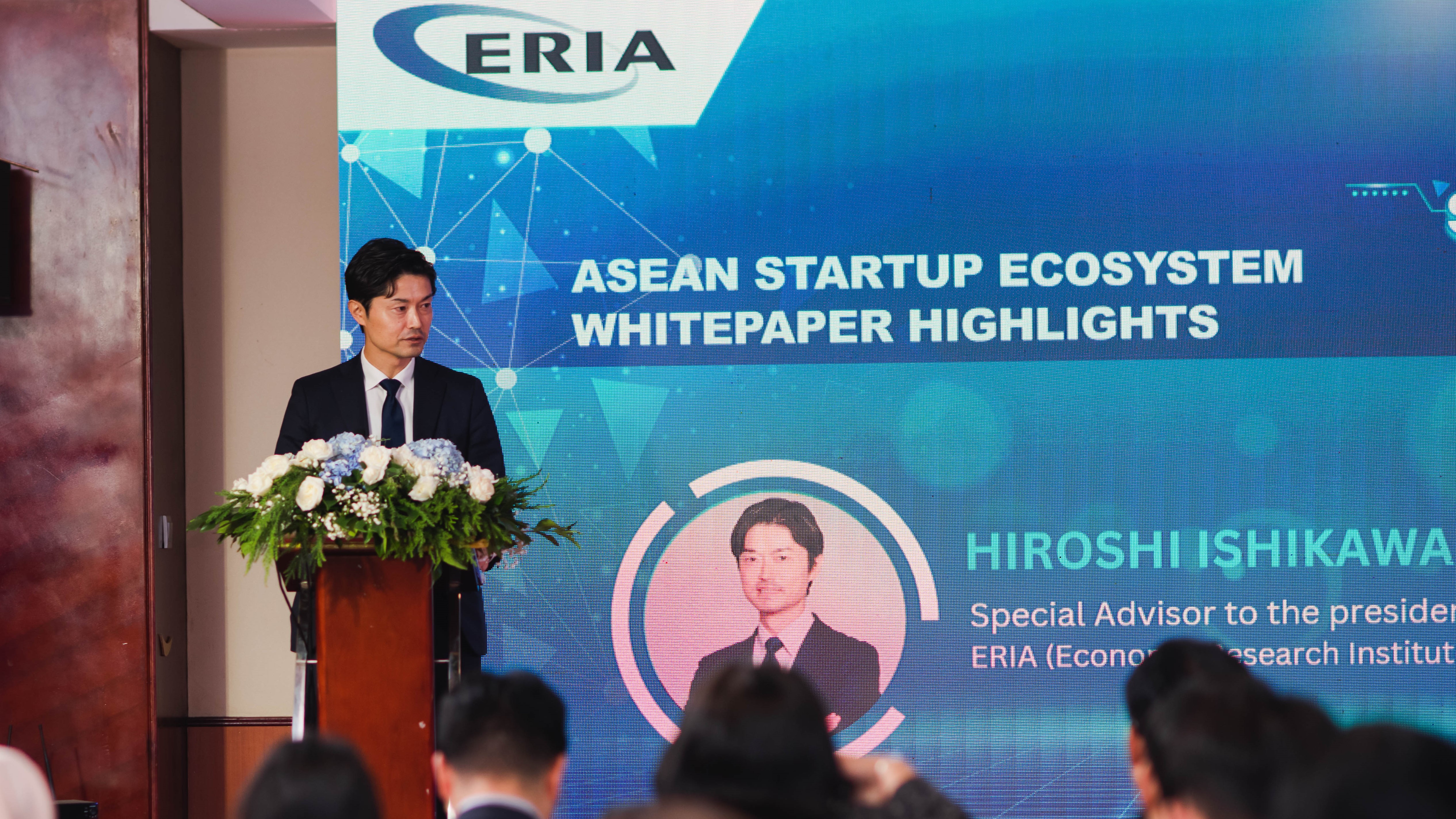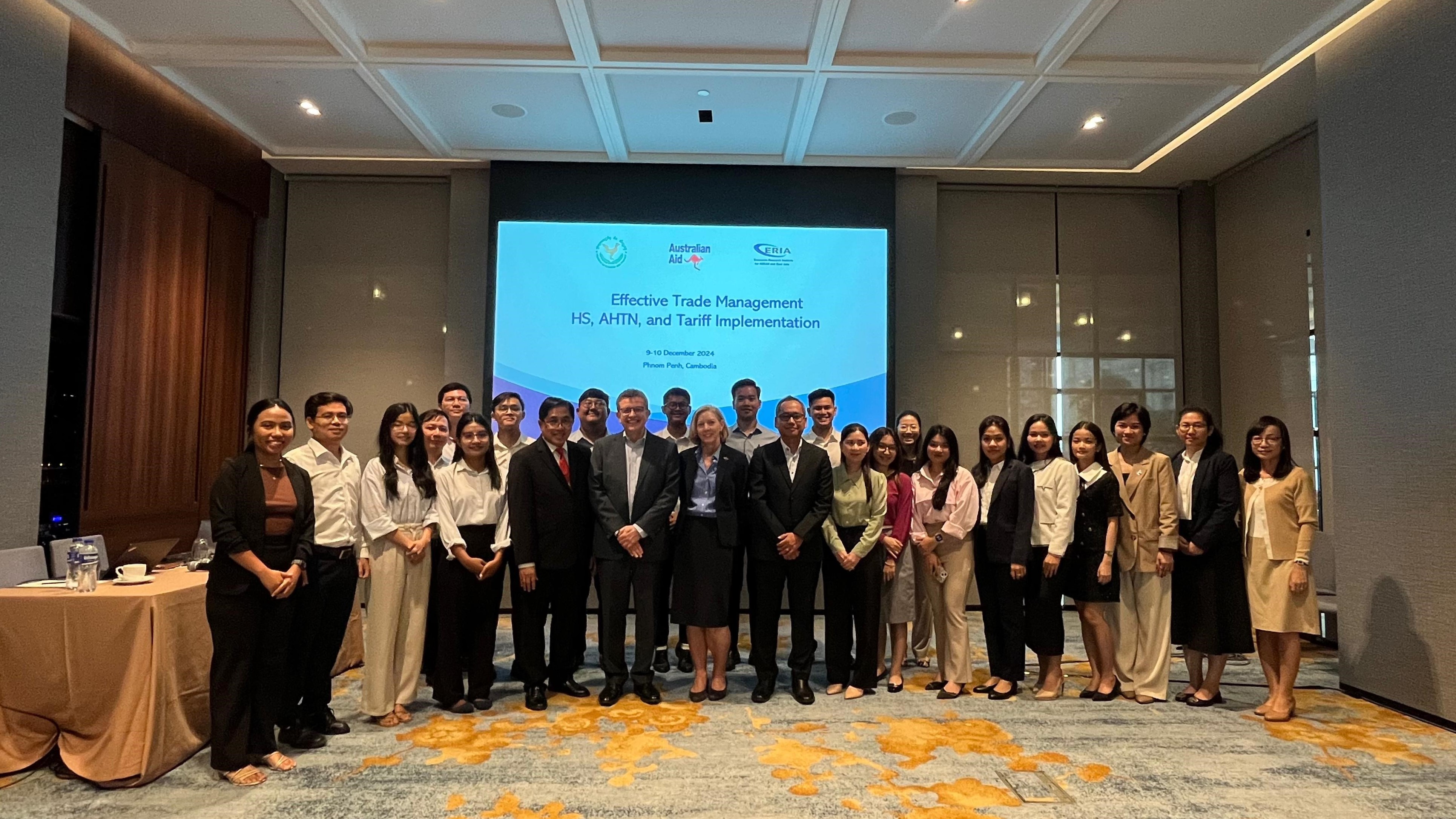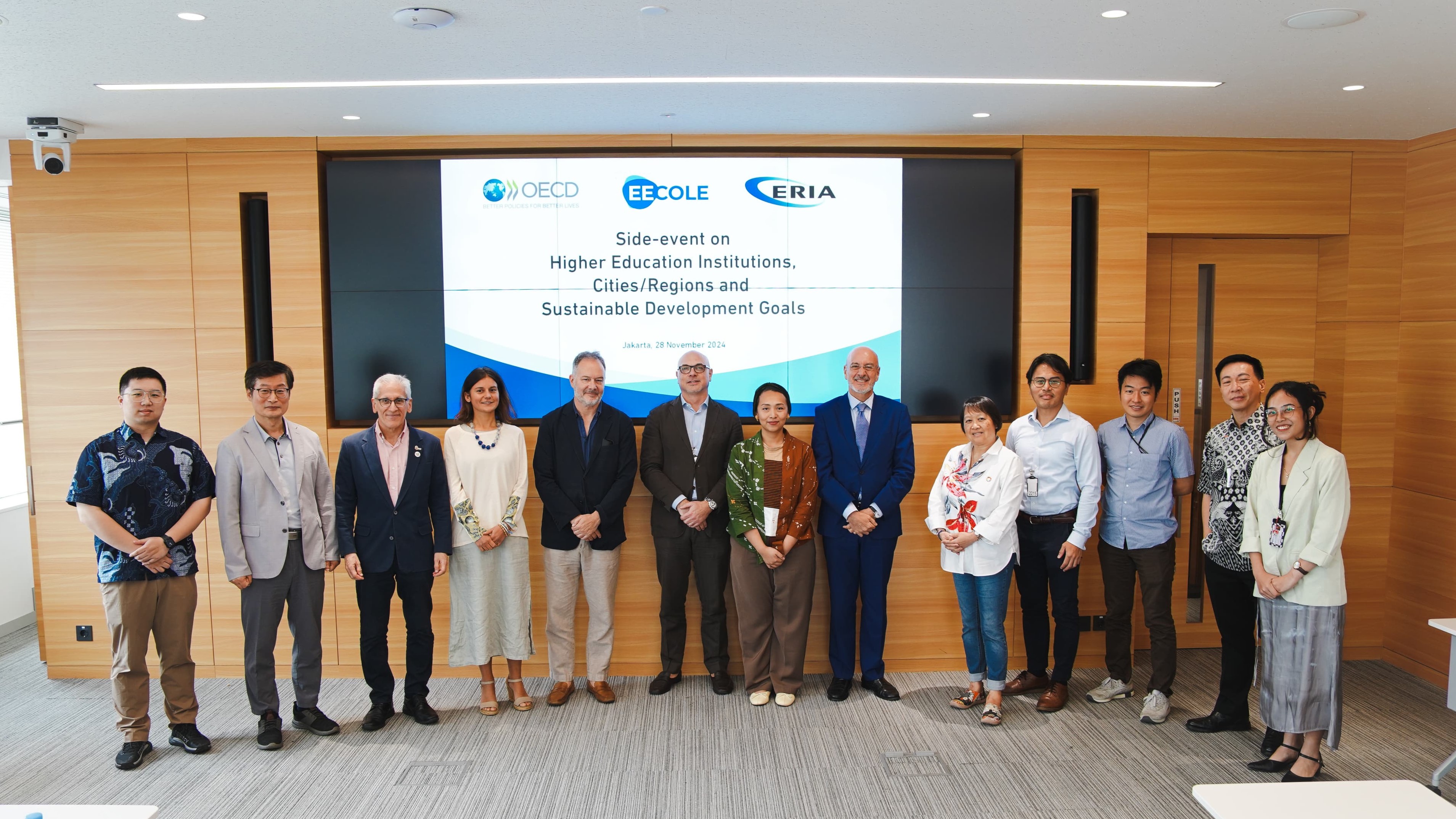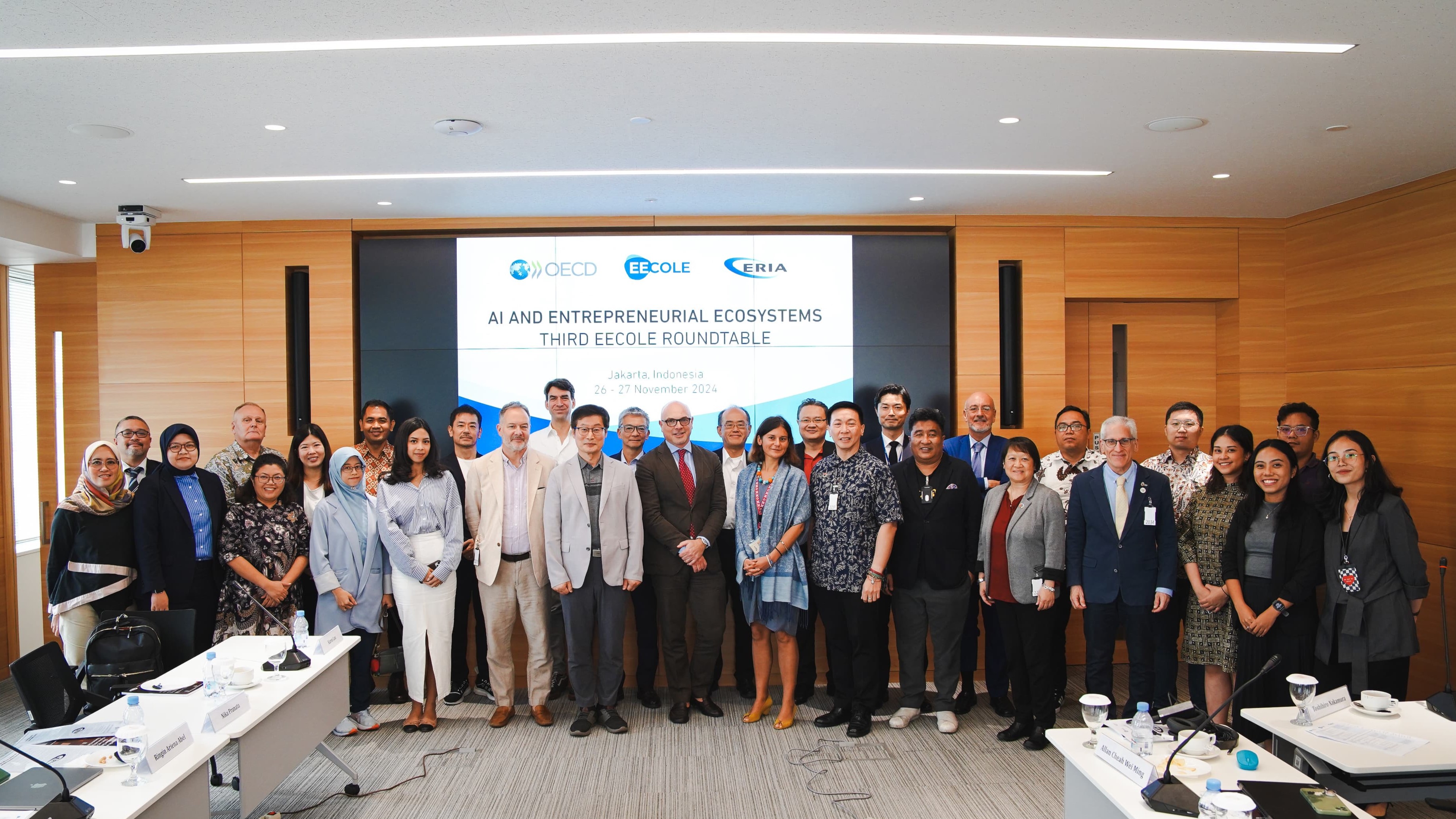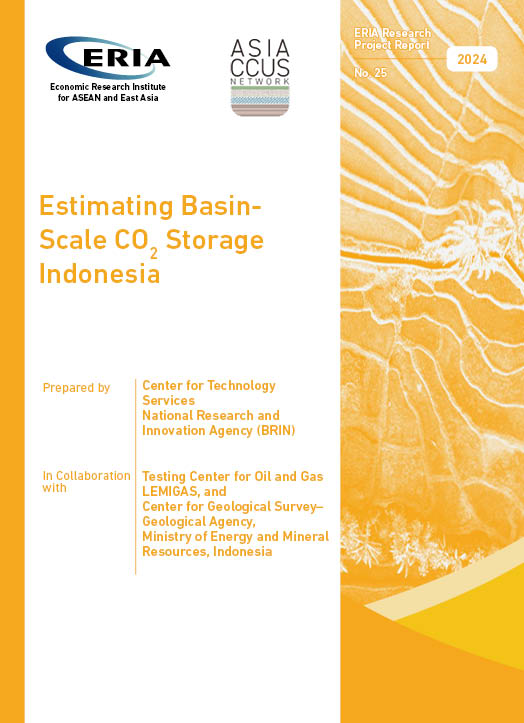ERIA Launches One ASEAN Start-up White Paper on Southeast Asias Innovation Ecosystem at ASEAN Business and Investment Summit 2024
Date:
9 October 2024Share Article:
Print Article:
Vientiane, 9 October 2024: ERIA has officially launched its inaugural One ASEAN Start-up White Paper from the ERIA Digital Innovation and Sustainable Economy Centre (E-DISC) during the ASEAN Business and Investment Summit (ABIS) 2024. Titled ‘Towards an ASEAN Innovation Ecosystem: Start-up Creation for Inclusive and Sustainable Economic Development,’ the report focuses on the critical role of innovation and start-ups in driving sustainable economic growth and societal progress across ASEAN. As the region recovers from the economic impacts of the COVID-19 pandemic, the report stresses the need for policymakers to seize this moment to foster inclusive growth and maintain ASEAN's competitiveness on the global stage.
Indonesia, as ASEAN’s largest economy, has made significant strides in developing its digital economy. Digital innovations have improved access to essential services such as healthcare, contributing to societal progress across the nation. However, the report highlights challenges such as the shortage of skilled professionals, including deep tech professionals, and barriers to investment. Limited funding and investment in technology R&D also affect the growth and retention of IT and AI professionals, which in turn impacts the level of talent in the region. Additionally, scientific output needs to improve. Indonesia faces a shortfall of 600,000 digital professionals by 2030 to sustain its digital transformation. Addressing these gaps will be crucial to further enhancing Indonesia’s start-up ecosystem.
‘Innovation and entrepreneurship are the cornerstones of sustainable development and competitiveness in today’s digital economy. ERIA is proud to contribute to ASEAN’s growth by providing research that helps shape the policy environment necessary for these key drivers of success,’ said Tetsuya Watanabe, President of ERIA, highlighting the importance of innovation for ASEAN's future.
The report emphasises how start-ups can play a significant role in promoting sustainable development in line with the United Nations Sustainable Development Goals (SDGs). Through a comprehensive analysis of current challenges and opportunities, it offers actionable recommendations to strengthen the start-up ecosystem across ASEAN, which is essential for boosting productivity, creating jobs, and addressing societal issues.
Dr Giulia Ajmone Marsan, Head of E-DISC’s Startups and Inclusion Programmes and the main author of the One ASEAN Start-up White Paper, underlined the urgency of transitioning to a knowledge-based economy: ‘Innovation and entrepreneurship are essential conditions for long-term sustainable economic growth in ASEAN. While ASEAN’s young population will continue to remain a driver of innovation and start-up creation over the next decade, policymakers need to seize the opportunity to transition towards a knowledge-based economy now, without any delay and by placing innovation and entrepreneurship at the top of the regional economic integration agenda.’
Hiroshi Ishikawa, Special Advisor to the ERIA President on Digital Innovation, also stressed the need for collaboration, stating: ‘For ASEAN, start-ups represent the greatest opportunity to leapfrog the economic and social development of each country. However, achieving this requires a comprehensive approach with close collaboration between the public and private sectors. Furthermore, there is not much time available to seize this opportunity. I hope this white paper will serve as a catalyst for active discussions between the public and private sectors on what is needed to move forward.’
ERIA’s E-DISC was established in 2023 to foster collaboration and evidence-based policymaking. The report calls on ASEAN leaders to act on the recommendations provided, unlocking the full potential of their digital economies and creating a thriving start-up ecosystem that will drive economic prosperity and innovation. The ultimate goal is to build a more inclusive future for the region’s citizens.
Key findings from the report highlight the urgency of prioritising the transition towards a knowledge-based economy. Developing high-growth firms, particularly start-ups, is seen as crucial for overcoming the 'middle-income trap' faced by many ASEAN countries. Indonesia, despite its strong domestic market, remains below its ASEAN neighbours in research and development spending and scientific performance, reflecting a key area of opportunity. Improving these indicators will be essential for the country’s continued economic growth.
The report also emphasises the importance of context-specific innovation policies, given the diverse economic conditions across ASEAN Member States. For example, innovations in sectors such as halal agri-tech in Indonesia showcase how the region’s cultural diversity can act as a powerful catalyst for innovation. ASEAN must leverage this diversity as a strategic asset, encouraging linkages and cooperation between innovation hubs across various sectors.
Amongst the report’s key recommendations is a call for a holistic approach to developing the start-up ecosystem. This includes enhancing access to capital, particularly in less developed countries such as Cambodia and Lao PDR, and ensuring that funding is not overly concentrated in major cities like Jakarta. Better market access through ASEAN's economic integration is also essential to scale start-ups. The report further calls for policies supporting talent development and retention, which are crucial for innovation and entrepreneurship.
Looking ahead, the report identifies several areas for improvement, including stronger regional coordination and better innovation-related data collection. ASEAN’s long history of regional integration provides a strong foundation for developing a cohesive innovation policy framework. The ASEAN Chairmanship of Malaysia in 2025 presents a unique opportunity to place innovation and start-up ecosystems at the forefront of the region’s integration agenda.
The report also highlights the role of start-ups in advancing the SDGs. With its young, tech-savvy population, ASEAN is poised to become a leading hub for SDG solutions and a key market for their implementation. As ASEAN continues to build its regional start-up ecosystem, it should also strive to play a more prominent role in the global innovation landscape by participating in international forums and networks such as the G20 and UN-led initiatives.
Through these concerted efforts, ASEAN can create an enabling environment for innovation, economic growth, and social inclusion, ensuring prosperity for all its citizens.
